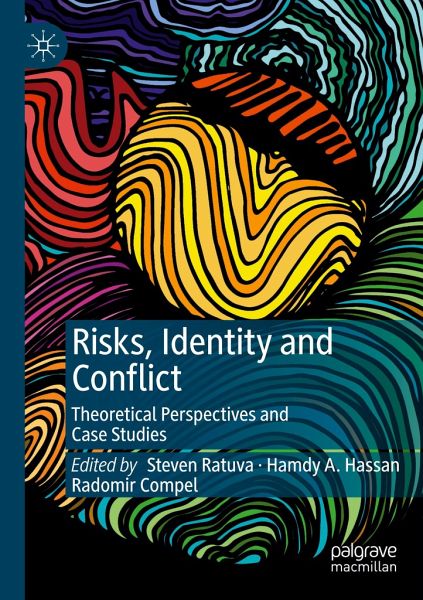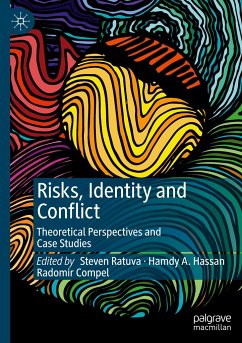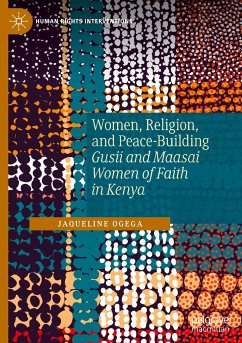
Risks, Identity and Conflict
Theoretical Perspectives and Case Studies
Herausgegeben: Ratuva, Steven; Hassan, Hamdy A.; Compel, Radomir
Versandkostenfrei!
Versandfertig in 6-10 Tagen
113,99 €
inkl. MwSt.

PAYBACK Punkte
57 °P sammeln!
This volume explores the complex interrelation between risk, identity and conflictand focuses specifically on ethnicity, culture, religion and gender as modes ofidentity that are often associated with conflict in the contemporary world. Itdraws on theoretical perspectives as well as pays special attention to analysis ofdiverse case studies from Africa, Middle East, Europe, East and Southeast Asiaand Latin America. Using various analytical tools and methodologies, it providesunique narratives of local and regional social risk factors and security complexities.The relationship between risk and s...
This volume explores the complex interrelation between risk, identity and conflict
and focuses specifically on ethnicity, culture, religion and gender as modes of
identity that are often associated with conflict in the contemporary world. It
draws on theoretical perspectives as well as pays special attention to analysis of
diverse case studies from Africa, Middle East, Europe, East and Southeast Asia
and Latin America. Using various analytical tools and methodologies, it provides
unique narratives of local and regional social risk factors and security complexities.
The relationship between risk and security is multidimensional and perpetually
changing, and lends itself to multiple interpretations. This publication provides a
new ground for theoretical and policy debates to unlock innovative understanding
of risk through analyses of identity as a significant factor in conflict in the world
today.At the same time, it explores ways to address such conflicts in a more
people-centered, empowering and sustainable way.
and focuses specifically on ethnicity, culture, religion and gender as modes of
identity that are often associated with conflict in the contemporary world. It
draws on theoretical perspectives as well as pays special attention to analysis of
diverse case studies from Africa, Middle East, Europe, East and Southeast Asia
and Latin America. Using various analytical tools and methodologies, it provides
unique narratives of local and regional social risk factors and security complexities.
The relationship between risk and security is multidimensional and perpetually
changing, and lends itself to multiple interpretations. This publication provides a
new ground for theoretical and policy debates to unlock innovative understanding
of risk through analyses of identity as a significant factor in conflict in the world
today.At the same time, it explores ways to address such conflicts in a more
people-centered, empowering and sustainable way.














